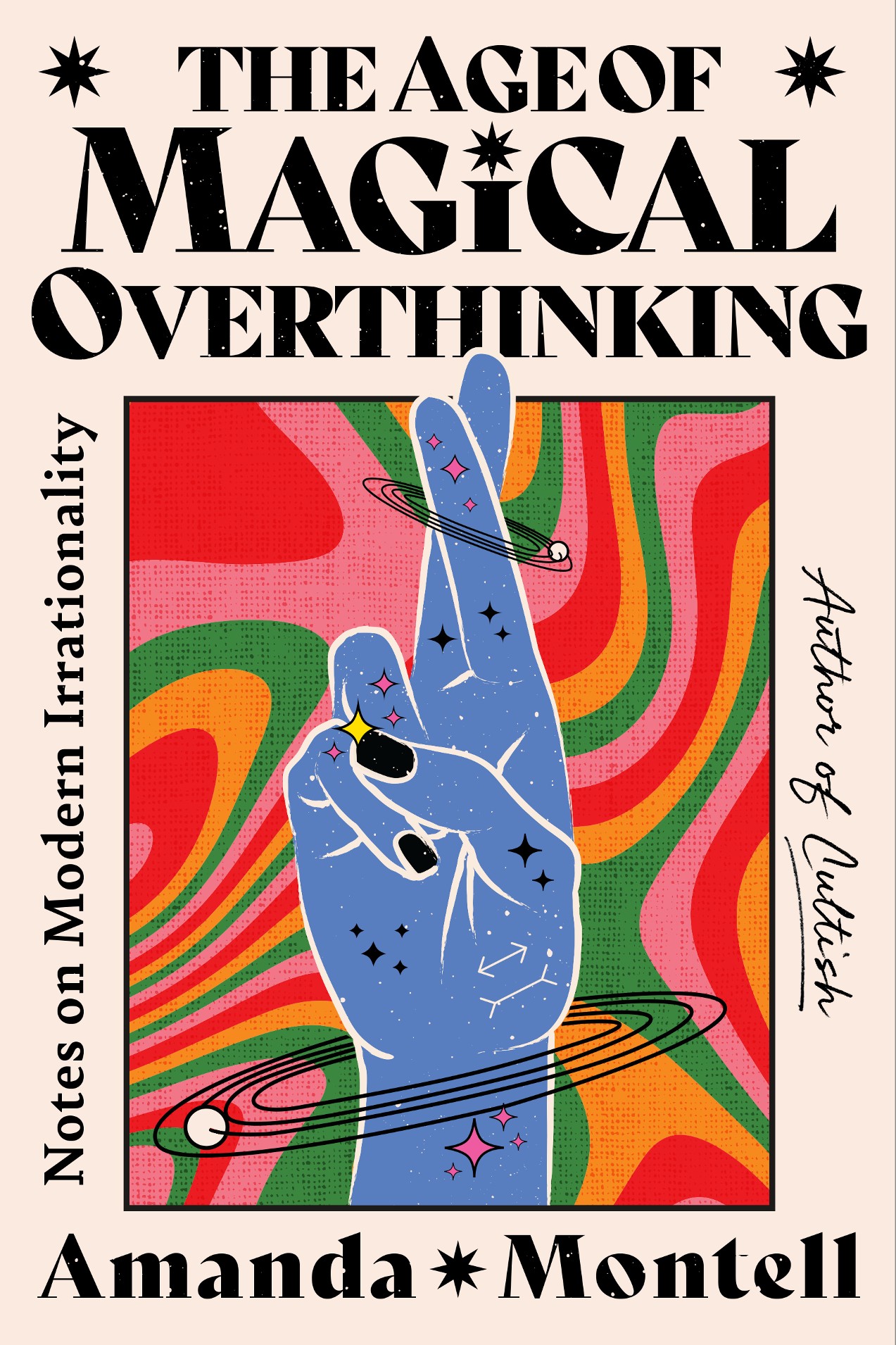Amanda Montell Has a Theory for Why Everything Feels So Hard Right Now
The author of 'The Age of Magical Overthinking' says it comes down to "an age-old cognitive quirk, something that’s always been embedded in the human mind."
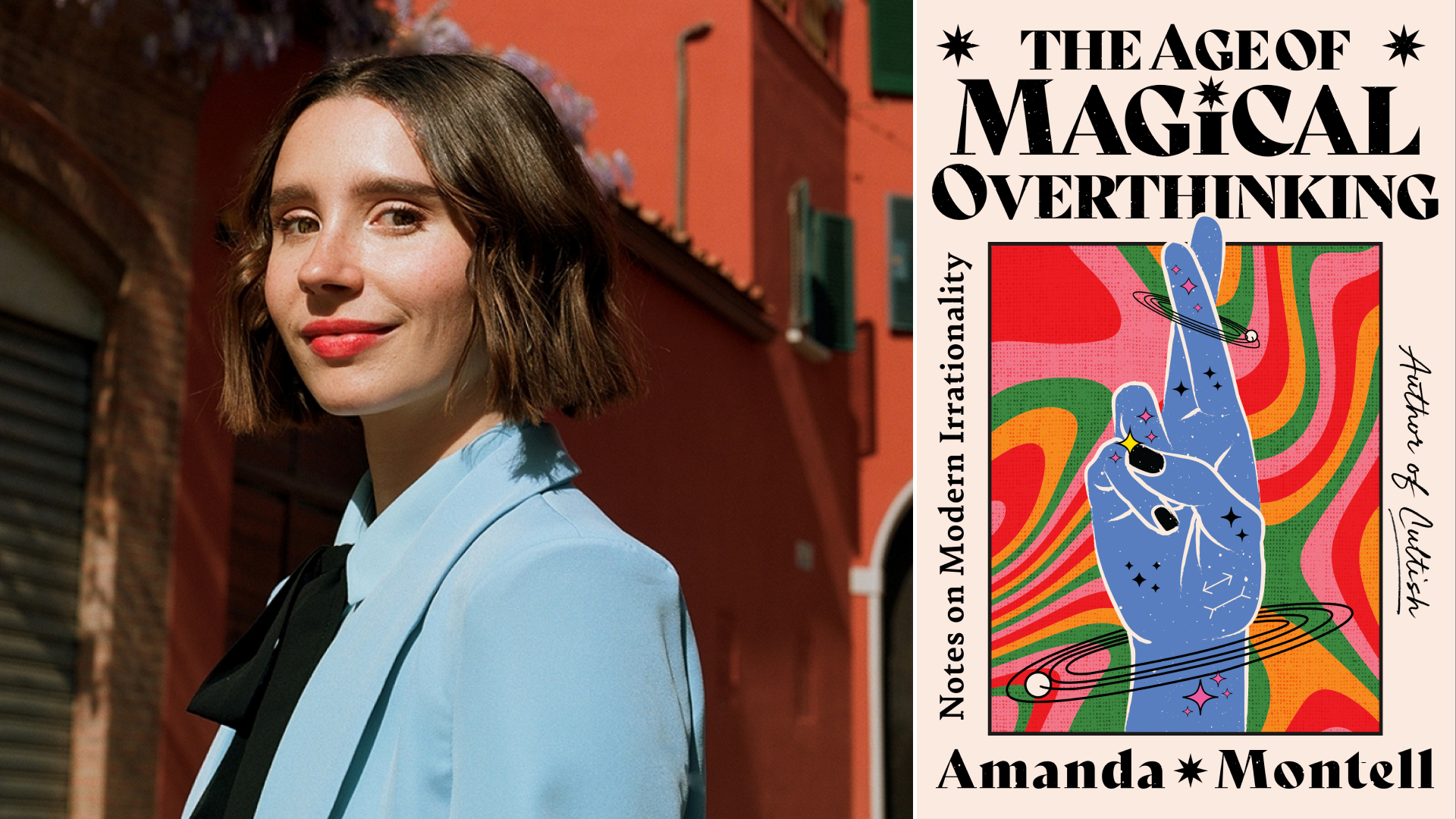

Linguist Amanda Montell describes her third book, The Age of Magical Overthinking: Notes on Modern Irrationality, as “the book I’ve always dreamt of writing.” In the book, out April 9, Montell explores 11 of the 200-plus cognitive biases like sunk cost fallacy, zero-sum bias, and the IKEA effect to explain what she refers to as “modern irrationality.” (A cognitive bias is an error in thinking borne from our unique interpretation of the world.)
“This book is about such a big idea,” Montell tells Marie Claire. “It was based on me feeling this incredible dissonance that, despite living in the information age, life only keeps making less sense.”
Each essay in the book explores a different cognitive bias, which proved “a helpful motif both for my own brain and for the book itself,” Montell says.
While considering the scope of the project that became The Age of Magical Overthinking, Montell saw a space she could fill. “I found a lot of books that talk about these subjects are written by men,” she says. "This is a sort of updated, fresher, and a slightly more feminine version.” (We doubt many philosophers have explored, say, the Halo effect through the prism of Taylor Swift.)
Marie Claire speaks to Montell about how the book came to be—and how the work involved helped Montell understand both her behavior and that of others.
Marie Claire: First of all—what is “magical overthinking”?
Amanda Montell: “Magical thinking” is our tendency to believe that our internal thoughts and feelings can affect external events. This is an age-old cognitive quirk, something that’s always been embedded in the human mind.
Stay In The Know
Get exclusive access to fashion and beauty trends, hot-off-the-press celebrity news, and more.
I found you can apply that personal experience of “magical thinking” to the broader culture. We’re experiencing such an unprecedented amount of information overload, as well as mass loneliness and this very capitalistic pressure to know everything under the sun, to be right about everything. Ostensibly, you can learn anything you want to know with the click of a button, and yet we don’t seem to be better at processing facts.
I learned during my research process for my last book that cognitive biases are these deep-rooted mental magic tricks we play on ourselves. They’re psychological shortcuts that we’ve always taken subconsciously in order to make sense of the world enough to survive it. They’re really colliding with the information age in a way that’s causing a lot of confusion and pain. That is the phenomenon I’ve been calling “magical overthinking”—this clash between our innate human mysticisms and the culture we’ve created.

Amanda Montell.
MC: Does all of this contribute to what you call “modern irrationality”? And what exactly does that mean?
AM: Humans have never been perfectly rational. Our minds are what is referred to as “resource rational”—we make decisions based on the most efficient use of our limited memory storage, time, and cognitive resources. We jump to a lot of conclusions without realizing that we do that.
There was a time in history when those conclusions were good enough to jump to. Our daily problems as a species were a lot more physical; now, as our daily challenges are becoming more complex and often disembodied—problems that we’re dealing with online or with coworkers on Slack, managing news coming from sometimes thousands of miles away—shortcuts that used to prove good enough are now disserving us. Those shortcuts are called cognitive biases, and I chose 11 that were most relevant and most applicable to the zeitgeist, and, also, my own life. I used them to explain so many irrationalities that are so present in culture right now.
MC: What can we do to stop overthinking the wrong things and stop underthinking the right things?
AM: Big question! [laughs] This is not a self-help book—I wanted to make that clear from the beginning. I did come across a ton of studies that do provide some actionable advice that I’ve been taking, so there are some helpful nuggets of wisdom sprinkled throughout the book I didn’t make up, but that are rooted in empirical studies. For example: Knitting is found to decrease depression in depressive patients. Taking walks in nature or even just perceiving nature inspires people to feel less materialistic, and like time is more expansive.
I have experienced—and it’s probably a relatable experience—that I go into fight or flight in response to an objectively non-urgent situation. Like, when I receive an email that feels a little curt, I will spin out. It’s important to slow down my thought processes and connect with the physical world by doing something with my hands or being in the midst of nature, if I can find a moment to go outside.
It goes back to the idea that we are clashing with this information-loaded age and it is triggering responses that aren’t appropriate. That’s what’s causing us to feel so bad. There’s interesting research quoted in one of the chapters about awe—how important it is to prioritize awe, to get outside of ourselves as much as possible.
We’re entering a self-focused time, a very individualistic time, so being able to engage with the physical world and immerse ourselves in a feeling of awe or a separation from our individualistic problems—some of which are non-problems, actually—that can help put things into perspective.
The first step in navigating the mental crisis of this age is to be more compassionate towards others and skeptical of ourselves.
MC: In your opinion, is there meaning to all of life’s events?
AM: We really want there to be. I find this to be so interesting—and I’m not the first to point this out—that humans are the only species that fictionalizes events in order to make them make sense. We make up stories about why we’re here, why this event happened, in order to justify them, in order to infuse some kind of cosmic logic into them. Which is so ironic—oftentimes, most times, things happen at random. Things happen due to a combination of small events that trigger a chain reaction.
We as human beings are really, really motivated by meaning. Meaning is really important to us. So I understand why people sometimes project meaning onto things where there isn’t any. It’s important to know it’s an inherent priority within us, and that we hopefully use it for good rather than evil. Not to sound dramatic, but a lot of conspiratorial thinking in society right now, purely because society is so complex.
I personally think it is our job to create our own sense of perspective and live in the balance of knowing life can be meaningful even if there isn’t some grand plan.
MC: How do you hope people feel when they close the book?
AM: I hope they feel validated, and less alone in feeling that it just seems so hard to exist as a human in the world right now. I hope readers come away learning we are all motivated by cognitive biases. They manifest in different ways, and they’re different because we all have different values. The first step in navigating the mental crisis of this age is to be more compassionate towards others and skeptical of ourselves.
This interview was edited and condensed for clarity.

Rachel Burchfield is a writer, editor, and podcaster whose primary interests are fashion and beauty, society and culture, and, most especially, the British Royal Family and other royal families around the world. She serves as Marie Claire’s Senior Celebrity and Royals Editor and has also contributed to publications like Allure, Cosmopolitan, Elle, Glamour, Harper’s Bazaar, InStyle, People, Vanity Fair, Vogue, and W, among others. Before taking on her current role with Marie Claire, Rachel served as its Weekend Editor and later Royals Editor. She is the cohost of Podcast Royal, a show that was named a top five royal podcast by The New York Times. A voracious reader and lover of books, Rachel also hosts I’d Rather Be Reading, which spotlights the best current nonfiction books hitting the market and interviews the authors of them. Rachel frequently appears as a media commentator, and she or her work has appeared on outlets like NBC’s Today Show, ABC’s Good Morning America, CNN, and more.
-
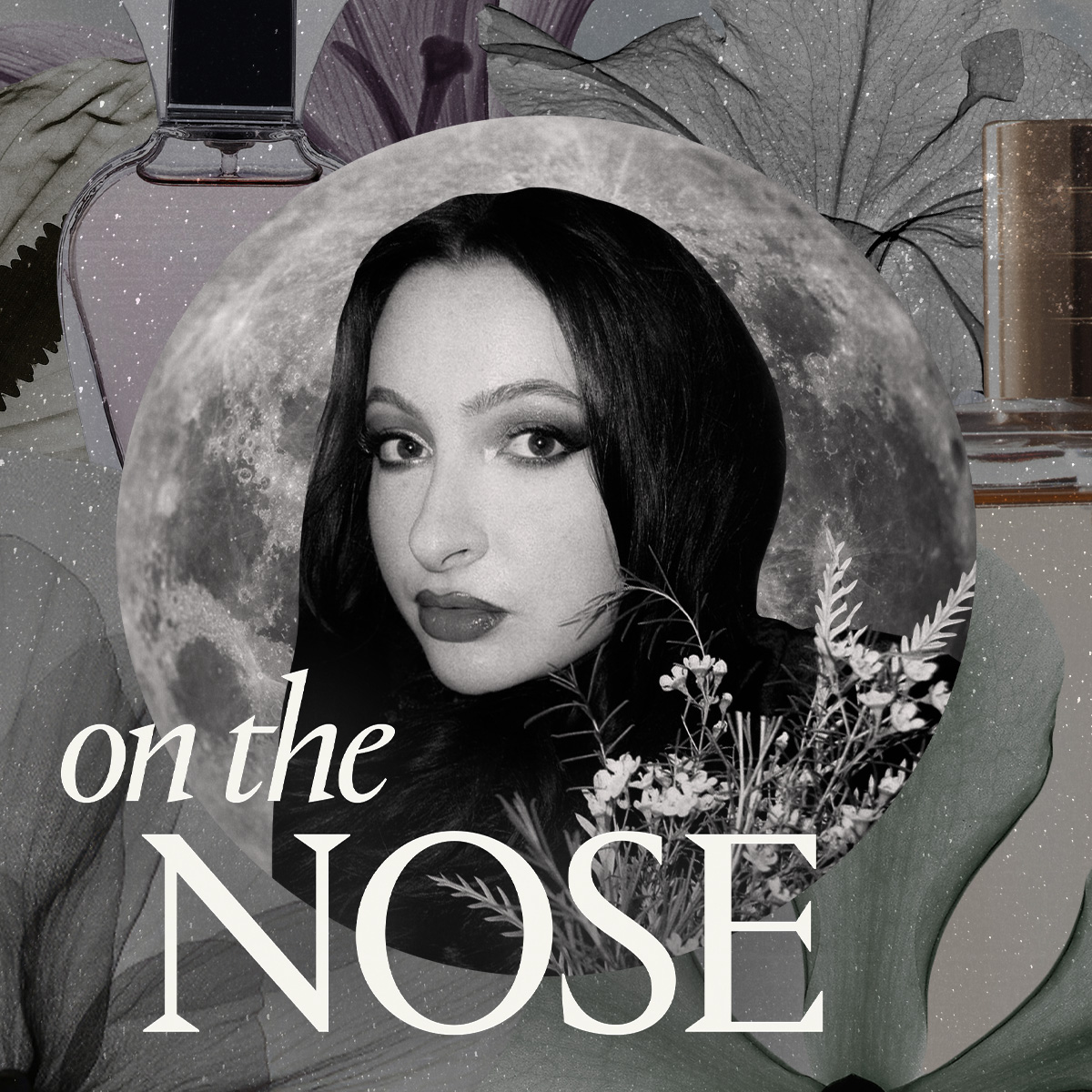 PSA: Your Fragrance Horoscope for Taurus Season Did Not Come to Play
PSA: Your Fragrance Horoscope for Taurus Season Did Not Come to PlayWhether you're cocooning or blooming, your scent is written in the stars.
By Aliza Kelly
-
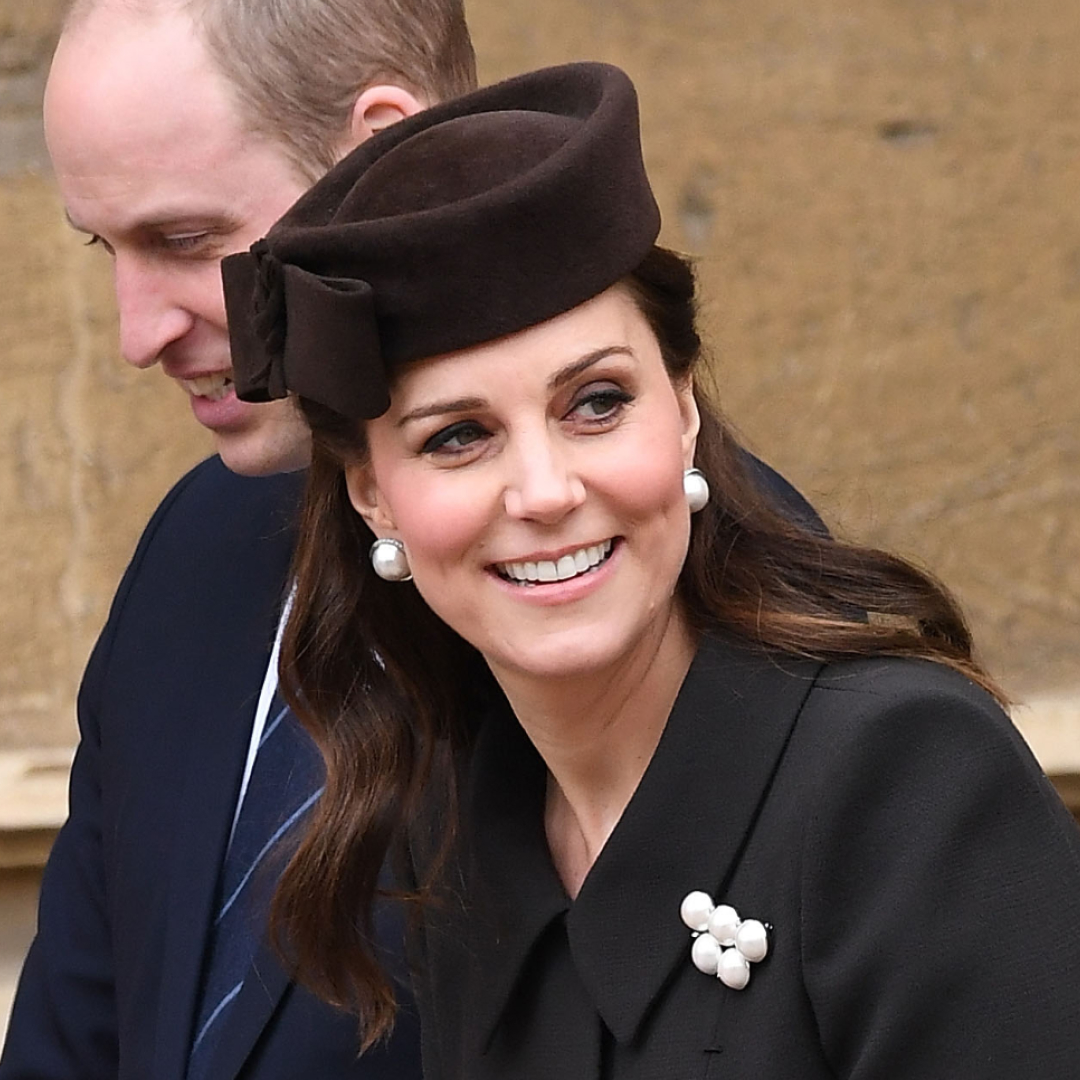 The Royal Family Easter Rule Kate Middleton Broke in 2018
The Royal Family Easter Rule Kate Middleton Broke in 2018The Princess of Wales was pregnant with her third child—Prince Louis—at the time.
By Amy Mackelden
-
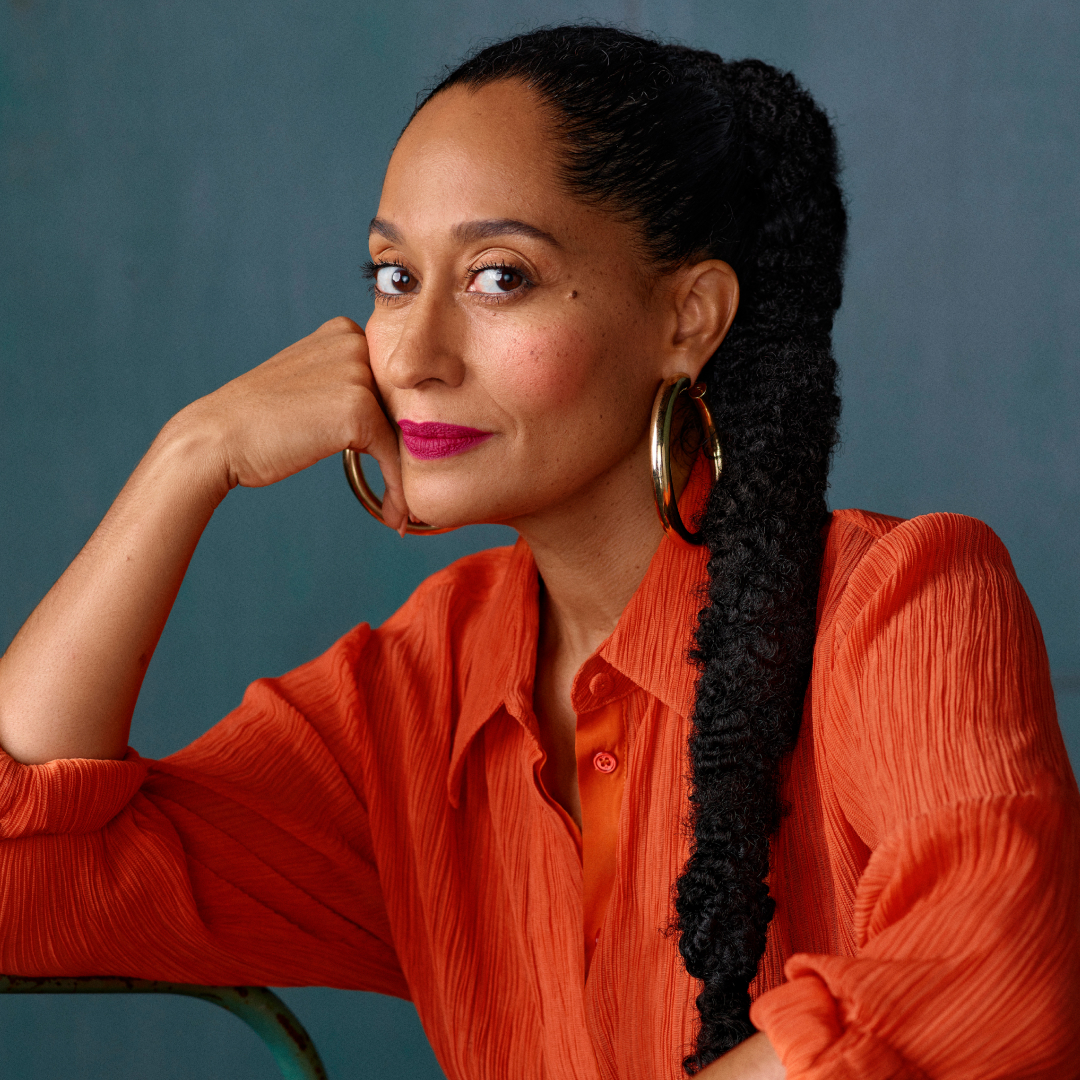 Tracee Ellis Ross Reflects on "Grief" Over Not Marrying or Having Kids
Tracee Ellis Ross Reflects on "Grief" Over Not Marrying or Having Kids"I grieve the things that I thought would be and that are not."
By Amy Mackelden
